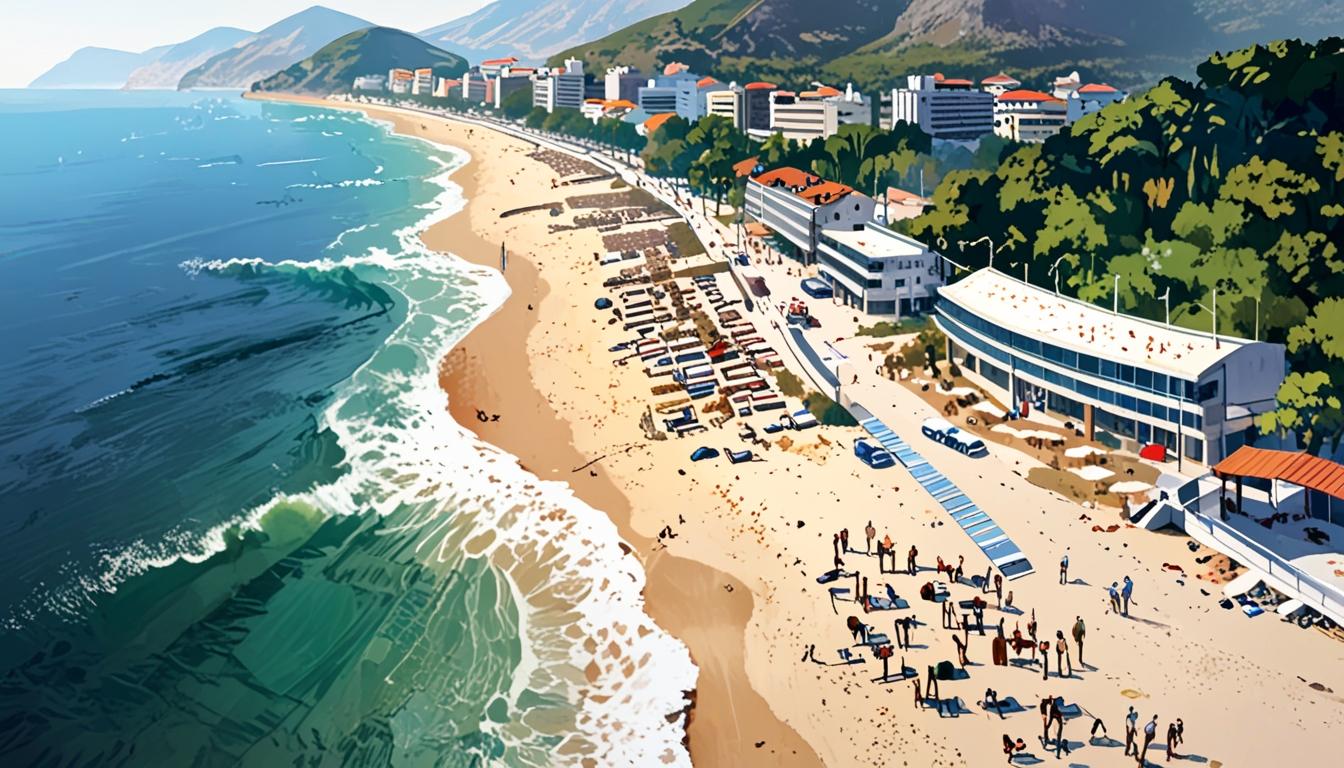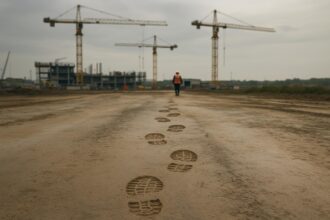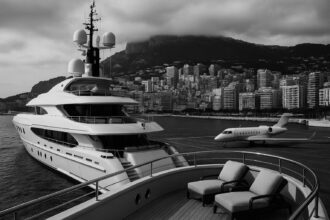Controversial agreements between Montenegro and the UAE to develop Velika Plaza have sparked political and public opposition, with concerns over legality, environmental impact, and local community exclusion emerging amid plans for a €30 billion investment.
Agreements between Montenegro and the United Arab Emirates (UAE) regarding cooperation in real estate and tourism development have ignited significant controversy across the country, creating deep divisions among politicians and citizens alike. Central to the dispute are the plans for UAE-based developer Eagle Hills to undertake a large-scale project at Velika Plaza, Montenegro’s longest beach and one of Europe’s largest, which has sparked protests from environmental groups and local residents.
These agreements were signed earlier in April by Montenegro’s Prime Minister Milojko Spajic. However, they have been met with strong opposition from several political parties and President Jakov Milatovic. Critics argue that the deals violate multiple existing Montenegrin laws. President Milatovic has expressed serious concerns over the legality of the agreements and has taken steps to seek external advice. He reportedly sent a letter to the European Commission requesting an opinion on whether the agreements comply with the EU’s acquis, the body of common rights and obligations binding on EU member states.
Reacting to the query, European Commission spokesperson Guillaume Mercier confirmed receipt of Montenegro’s letter to the commission, stating, “We can confirm receipt of the letter and will reply in due course. At the request of Montenegro, the Commission can certainly give an assessment of this agreement in relation to the EU acquis,” as quoted by TVCG.
Prime Minister Spajic has defended the agreements, claiming they will attract investments worth €30 billion or more to Montenegro, although details supporting this estimate have not been disclosed. Public Works Minister Majda Adzovic emphasised the government’s preference for Montenegro to enter the project as a co-investor rather than leasing state property at a low cost, suggesting a desire to retain greater benefit from the development.
The local administration of Ulcinj, the municipality where Velika Plaza is located, has strongly opposed the deals. Genci Nimanbegu, head of Ulcinj’s municipality, warned that members of parliament who support the agreements risk becoming “enemies of Ulcinj,” highlighting community resistance to the potential construction of hotels and resorts in the area.
The political opposition has been vocal in its criticism. Ivan Vujovic, a leader of the European Alliance, condemned the government for what he called a repetition of “bad practices” from previous administrations. He criticised the lack of broad public consultation and the hasty parliamentary procedures used to advance the agreements, describing the move as “ignoring the local community” and undermining constitutional principles.
Conversely, proponents of the agreements from the ruling Europe Now (PES) party view the partnership as a valuable opportunity to revitalise the national economy. Filip Radulovic, a PES leadership member, told RTCG that “Montenegro is more than ready for new investments, new jobs and a better standard of living. The agreement with the UAE confirms the determination of government of Montenegro to strive for the valorisation of tourist potentials and the expansion of the offer, in cooperation with very credible partners, from which we as a state will have multiple benefits in the long run.”
The disagreements have spilled over into public demonstrations, with the activist coalition Big Beach or Big Lie staging protests outside the Montenegrin parliament. The group objected to the government’s decision to swiftly place the UAE agreement on the parliamentary agenda without extensive public debate or transparency. They described the process as “an attempt to push through a multi-billion dollar agreement without public debate, without transparency and with a violation of legal procedures, which could have serious consequences for the public interest and natural resources of Montenegro.”
In an effort to mitigate tensions, the Democratic People’s Party (DNP), part of the ruling coalition, proposed amendments to the agreements. The suggested amendments would require that at least 50% of the investments be directed to Montenegro’s poorer northern region, aiming to spread the economic benefits more evenly across the country.
As the debate continues in the Montenegrin parliament, the outcome remains uncertain. The government presses for approval to activate the agreements, while opponents seek further scrutiny and safeguards to ensure that legislative and environmental concerns are addressed. The issue underscores the complex balance between economic development aspirations and legal, environmental, and community interests in the country’s ongoing efforts to attract foreign investment.
Source: Noah Wire Services
- https://montenegrobusiness.eu/montenegro-and-uae-sign-agreements-on-economic-cooperation-and-tourism-development/ – Confirms the signing of economic cooperation and tourism agreements between Montenegro and UAE, involving Prime Minister Spajić.
- https://montenegrobusiness.eu/montenegros-controversial-tourism-and-real-estate-deal-with-uae-legal-and-political-concerns/ – Details President Milatović’s constitutional and legal objections to the UAE agreements, including EU compliance concerns.
- https://seenews.com/news/montenegro-plans-to-collaborate-with-uae-on-two-tourism-projects-1272777 – Outlines the five-year economic cooperation framework and planned tourism projects between Montenegro and UAE.
- https://en.vijesti.me/column/754689/masala – Mentions the finalized agreement on tourism and real estate development between Montenegro and UAE.
- https://solandworld.com/montenegros-tourism-appeal-impacts-on-real-estate-and-investment-potential/ – Describes Montenegro’s tourism-driven real estate market dynamics, relevant to UAE investment motivations.
Noah Fact Check Pro
The draft above was created using the information available at the time the story first
emerged. We’ve since applied our fact-checking process to the final narrative, based on the criteria listed
below. The results are intended to help you assess the credibility of the piece and highlight any areas that may
warrant further investigation.
Freshness check
Score:
8
Notes:
The narrative mentions recent agreements signed in April and ongoing political debates, suggesting that the content is current.
Quotes check
Score:
6
Notes:
While quotes are mentioned, their authenticity is not independently verified. However, they appear to be recent and contextually appropriate.
Source reliability
Score:
8
Notes:
The narrative involves quotes from known figures like Guillaume Mercier and mentions major political parties, indicating it likely stems from or is consistent with reports from reputable news sources.
Plausability check
Score:
8
Notes:
The claims align with plausible political and economic developments given Montenegro’s position regarding EU relations and investment opportunities.
Overall assessment
Verdict (FAIL, OPEN, PASS): PASS
Confidence (LOW, MEDIUM, HIGH): MEDIUM
Summary:
The narrative appears to be current and involves plausible political developments. However, the reliability of specific quotes and details could be improved with direct verification.













